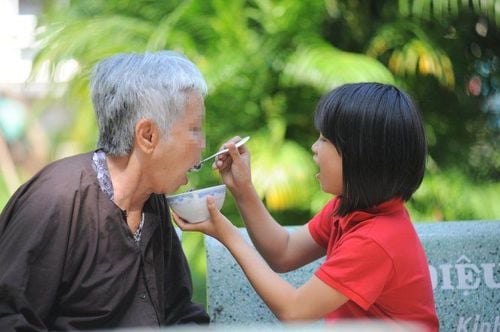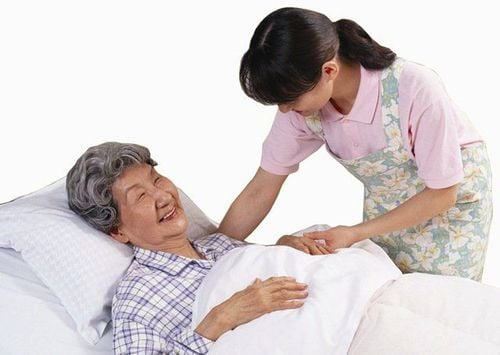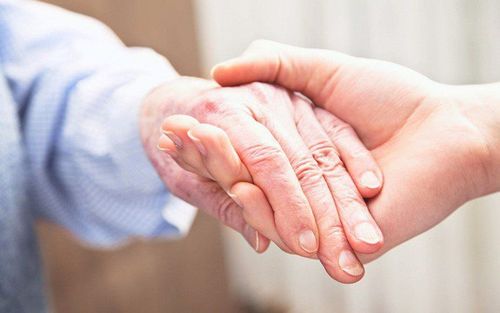This is an automatically translated article.
The role of cancer caregivers is by no means simple. Caring for both physical and mental health is something carers should understand and empathize with.1. Being both a relative and a caregiver is a challenge
Today cancer patients often need more care at home than in the hospital. Therefore, the care of patients is often done by relatives, and it is really a challenge, requiring a day-to-day perseverance. How to take care of cancer patients, what to do when a loved one has cancer? There will be a lot of routine work that the caregiver has to support the patient, such as eating, bathing, changing clothes, going to the toilet,...
Besides, there are many other things that need to be taken care of such as walking. , appointment scheduling, financial management, ... and most importantly, it is necessary to ensure both good patient care and satisfactory resolution of personal and family problems. There are people who no longer have time to care for themselves, even have to give up their jobs and careers to take care of the sick.
However, stay calm in the face of the irrevocable fact that your loved one is seriously ill, and more than ever, they need love, understanding, and care for the rest of their lives. This is the time to show the caregiver's love for the patient, the time to show the irreplaceable role of the family in the face of illness.
Through the process of caring for patients, caregivers will gradually realize their own abilities that were previously unknown, which are caring, empathy, sharing, confidence. as well as perfection in the arrangement and performance of work.
There are times when caring for the seriously ill becomes really tiring and stressful. At such times try to find a way to relax yourself, regain balance, do not get angry or blame the patient, doing so does not help anything in reality but also makes the patient already sad. Because of illness, I feel even more tormented and desperate. Keeping a balanced mind and positive emotions will help invigorate caregivers.

Chăm sóc cho người bệnh
2. Carers need to take care of themselves too
Caring for cancer patients is never easy, there are times when everything goes smoothly, but there will be many times when everything seems to fall into a dead end, which is very normal. There are many causes of stress and sadness, such as uncertain future, financial troubles, difficult choices, chaotic life,... Negative emotions (fear, despair, torment, anxiety, anger, etc.) can be present in both the caregiver and the patient. As a result, caregivers are very susceptible to both physical and mental effects.
2.1. Depression Depression is quite common among caregivers of cancer patients, although not all caregivers experience depression. Everyone's emotions are happy and sad at times, but if you are constantly sad, helpless, cry a lot or get angry easily, it could be a warning of depression.
A lot of people see low emotions as a sign of weakness rather than a sign of imbalance, so they often ignore it. But recognizing the signs of depression early can make a huge difference to the effectiveness of patient care.
There are several methods caregivers can use to reduce stress, rebalance emotions, and prevent the progression of depression over time:
Get more support from family, relatives, friends friends in the care of the sick. Do excerise. Eat a balanced diet. Mental support activities, such as religion, prayer, meditation, etc. Rebalance your schedule, socialize, meet friends. Consult a psychologist or psychiatrist While caring for the patient, caregivers should not forget their own needs.
2.2. Make a plan to do things you enjoy Try to spend time doing things you enjoy, such as:
Socialize with others: eat out, hang out with friends,... Bring joy to yourself body: exercise, play sports,... Bring a sense of peace, relaxation: meditate, go for a walk, watch a movie,... Time for yourself is very important, enjoy it , and think nothing else, to regain balance both physically and mentally.
2.3. Consult a specialist when needed Under the burden of caring for a sick person, caregivers can feel exhausted. But if the condition persists, consult a mental health professional, especially if the following signs are present:
Feeling weak, weak, hopeless. Having thoughts of self-harm, harming, or yelling at the patient. Abuse of alcohol or psychoactive drugs. Fighting with people around (family, friends, children,...) No longer wants to take care of themselves. 3. Take a break for yourself Patient carers are hesitant to take a break, even if it's just for a little while, because most feel guilty about doing so. But no one can complete continuous care day in and day out, 24 hours a day for years and months.
Trying to get out every day, whether it's for a short walk or to buy some food, will help the caregiver feel better. If the patient's condition requires always having someone to help, seek support from relatives, friends, acquaintances, if no one can help, try hiring a carer.
4. Know your limits Carers sometimes can't do everything on their own. Everyone's abilities are not limitless, so ask for help when you can't do something. If the caregiver tries to do the impossible, it is very easy for the caregiver to harm himself or herself. Always remember, caregivers must be safe and healthy to provide the best patient care.
5. Seeking Help Carers for patients also need a lot of help. Find people you can trust and help, be it relatives, acquaintances, friends, neighbours,... In family meetings, let everyone know what family members of cancer patients should do, so that everyone shares the responsibility of caring for the patient. All for the best outcome for the patient.

Mọi người chia sẻ trách nhiệm chăm sóc bệnh nhân
6. Taking care of children and taking care of the sick Caring for a cancer patient and caring for children can be quite a difficult situation. Many people are confused about when and how to take care of their children when taking on the responsibility of taking care of the sick. The key here is to share the burden, let family members as well as people you can trust help take care of the patient.
The kids may not get as much attention as before, but try not to mess up their lives too much. Children are very sensitive to changes, so although the time spent with them may be less, always care and talk to them, to understand and share their thoughts and feelings.
7. Balancing work and caregiving Caring for a cancer patient sometimes has a big impact on the caregiver's job. Leave, unpaid leave, low productivity, missed targets, loss of rewards, work interruptions, even layoffs are real problems that caregivers face.
There are times when caregivers are forced to take time off to take care of the patient, such as when the patient goes to the doctor, performs therapy, or when the patient is about to die. In general, caregivers need to find a balance between work and patient care, even though this can be extremely difficult at times. Explain your situation to your workplace manager for assistance.
8. If caregivers make mistakes No one can do everything perfectly, and so is patient care. Try to do your best within your limits.
Please dial HOTLINE for more information or register for an appointment HERE. Download MyVinmec app to make appointments faster and to manage your bookings easily.
Article referenced source: Everyday.com, reuters.com












